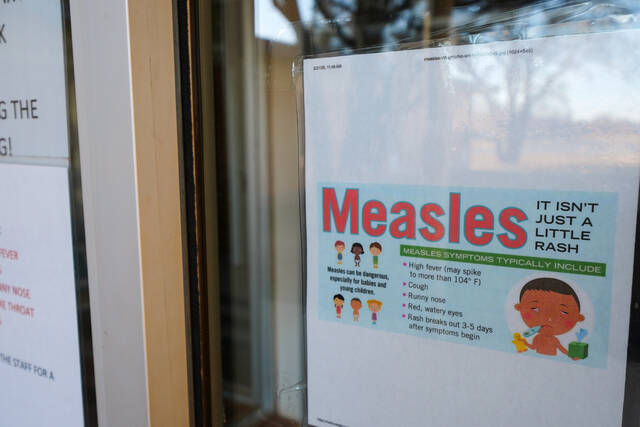A new University of Pittsburgh study shows how good gut health could be beneficial at fighting certain kinds of cancer.
A study published Thursday in the science journal Cell showed probiotic bacteria in mice traveled from the animals’ guts and established in tumors, where the bacteria directly stimulate immune cells to make cancer immunotherapy more effective.
When Pitt researchers gave mice a diet rich in the amino acid tryptophan — which the bacteria convert to I3A — immunotherapy drugs had a stronger effect on restraining the mice’s tumor size and prolonging the animals survival, according to a press release.
Researchers said the findings lay the groundwork to test if similar treatments could improve outcomes in human melanoma patients undergoing immunotherapy. It also could lead to testing to see if combining probiotics and diet could boost treatments for human patients.
Marlies Meisel is the senior author of the study, as well as an assistant professor in Pitt’s School of Medicine and member at UPMC Hillman Cancer Center. She said researchers have known that gut microbes influence immunotherapy response, but questions have remained to what extent.
“Our study is the first to show that orally administered bacteria increase efficacy of cancer immunotherapy by moving to tumors outside of the gut where they directly impact immune cells in the tumor,” said Meisel.
Mice with melanoma were fed L. reuteri, a bacterium that is often part of commercially available probiotics, and the researchers showed the bacteria moved from the gut to tumors.
Meisel cautioned against extrapolating too much from the study, and that it should serve as an initiation, but not a recommendation. Still she said it should help jump start additional research and clinical trials to look at probiotic bacteria’s role as a potential biomarker to see which patients are likely to respond to immunotherapy.
According to the American Cancer Society, melanoma has a five-year survival rate of 94%, but survival rates lessen if the cancer spreads to parts of the body beyond the skin.
Additionally, the effects of the probiotic bacteria weren’t limited to melanoma and suppressed cancer growth in mouse models of adenocarcinoma, fibrosarcoma and breast cancer.
“We were surprised to find that I3A released by L. reuteri within the tumor enhanced immunotherapy response whereas the presence of L. reuteri in the gut was insufficient to have an anti-tumor effect,” said Meisel.
The Pitt study adds to previous research showing that gut bacteria via fecal transplants improved immunotherapy treatment in human melanoma patients.








